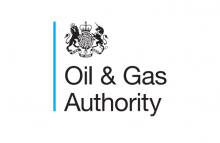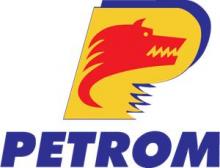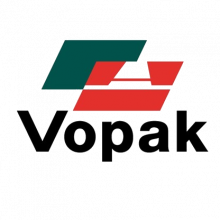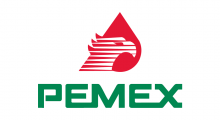An intensive 4-day in-house training course delivered to your company by top industry experts
Course Overview
The upstream oil and gas industry has become more technology-intensive over the years, and the pace of technological change within the sector is accelerating. But how should an organization manage the development, deployment, and use of new innovations that are emerging within the industry? This course gives participants knowledge of how innovation and R&D happen within the sector and, by teaching them how to apply a broad range of tools, shows them how they can get better results from their organization’s innovation-related activities. The course also equips participants with the tools and processes to get the technology deployed and maximize outcomes.
"We have engaged Deployment Matters and tapped into their know-how and expertise of technology deployments. Their methodology to assess benefits and do-ability and the correspondingTech Positioning Programme worked very well for us. Furthermore, the concept of a technology catalogue / innovation store to create pull in the network is working well for us.”
Mark Noordhoek-Hegt – Global Director Digital Innovation - Vopak
Learning Objectives
By the end of this course, participants will:
- Develop an appreciation for the role of innovation in the success of oil & gas firms
- Understand the industry-specific challenges of R&D in the oil & gas industry
- Know how to be innovative even in a low-price or turbulent environment
- Understand “open innovation,” and know a few ways that they can become open innovators who successfully leverage innovations and good ideas from other organizations and industries
- Know how to articulate the potential value of oil & gas technologies, and to recognize the limitations of different valuation methods
- Understand how innovation can help the oil & gas industry to survive and compete in a carbon-constrained world
- Develop an appreciation for how digital technologies like Big Data, cloud computing, Internet of Things, blockchain, etc. are changing the competitive dynamics of the sector
- Understand how/why dominant designs emerge in the marketplace, but not always (and the market conditions that typically give rise to each scenario)
- Know how to connect your technology strategy to the larger strategic aims of your organization
- Know how organizational designs impact innovation processes, thereby helping them to design organizations that are more innovative and successful in managing novel technologies
- Understand tools and approaches for managing and tracking new product development and their organization’s R&D portfolio
- Understand how and why technology gets deployed, including the technical and business drivers that ensure success and how to position technology accordingly.
- Know how to use the right tools and processes to effectively address business challenges with technology.
- Understand the critical success factors for making technology deployment happen and how to organize the technology delivery in line with these critical factors.
Course Directors

Rob Perrons
Among the many things that Rob has done, he was the lead architect and researcher for the Society of Petroleum Engineers’ Global Innovation Survey in both 2012 and 2017.

Erik Nijveld
Sales & Marketing
Day 1
- Role of innovation in the marketplace
- Specific challenges of R&D and innovating in the upstream oil & gas industry
- Sources of innovation
- Translating creativity into innovation
- The types of innovation: radical vs. incremental, disruptive, etc.
- Technology standards and design dominance
- Timing of entry: first-mover advantage vs. fast-follower strategy
Day 2
- Aligning your technology strategy with your organization’s larger strategic goals
- Technology valuation tools for the oil & gas industry
- How digital technologies are re-shaping how innovation happens between and among collaborating organizations
- “Open Innovation” and strategies for collaborating with outside organizations
- Designing your organization to maximize innovativeness
- Managing your innovation portfolio: technology readiness levels and other tools
- Design for manufacturing
Day 3
- New manufacturing methods and their impact on the oil & gas sector
- Digital oilfield/“smart fields” design philosophy
- Digital technologies that are impacting the upstream oil & gas industry
- Big Data
- Cloud computing
- Internet of things
- Blockchain
- Artificial Intelligence
- How digital technologies are resulting in business model innovations that are changing the strategic contours of the industry
- How would Google run the oil & gas sector? Microsoft? Apple? (group exercise)
- The potential “uberization” of the energy industry—what changes are unfolding, and how can we prepare for them?
- TechnologyCatalogue.com: a digital platform for the Oil & Gas industry.
Day 4
- Discussion: what are the non-technical challenges that we face and the value lost if we fail to deploy? What can and does go wrong when we try to introduce technology and deploy to scale?
- Critical Success Factors for Technology Deployment. The factors that will be discussed include the following:
- Fit-for-purpose process for translating business challenges/ opportunities into technology actions.
- Know what technologies are available (how to see the wood for the trees?)
- Create a business case for technology deployment.
- Understand the other factors that are at play around technology decision making, besides the financial numbers (including the importance of trust).
- Apply the right tactics to get decision makers on board.
- Effective ways for organising the technology deployment delivery.
- Create momentum through quick wins.
- Visual Management tools in support of technology deployment.
- Leadership engagement.
- Last but not least: create a Technology & Innovation culture.
- Increase the chances of success by using the Tech Positioning Programme
- Course Reflection
Who Should Attend?
This course is appropriate for anyone who is connected to the innovation-related aspects of their organization, who works in decision-making roles that are frequently impacted by the emergence of new technologies, or who wants to play a role in creating a more innovative environment within their business. No prior experience or training in this area is required for this course.
“By blending his deep industry experience and his research on tomorrow’s technology trends, Dr. Perrons does a great job of unpacking this important subject.”
Dr. K. H. Leong - Group Technical Authority – Composites and Advanced Materials - Petronas, Kuala Lumpur
Practicalities
You can invite a maximum of 25 course participants. You are responsible for sending out the invites and for organizing the venue. Course participants will receive pdf of the slide material.
Interested? Need further info?
Please reach out to Erik Nijveld via email: eriknijveld@deploymentmatters.com or phone: +31622752544
Prices available on request








